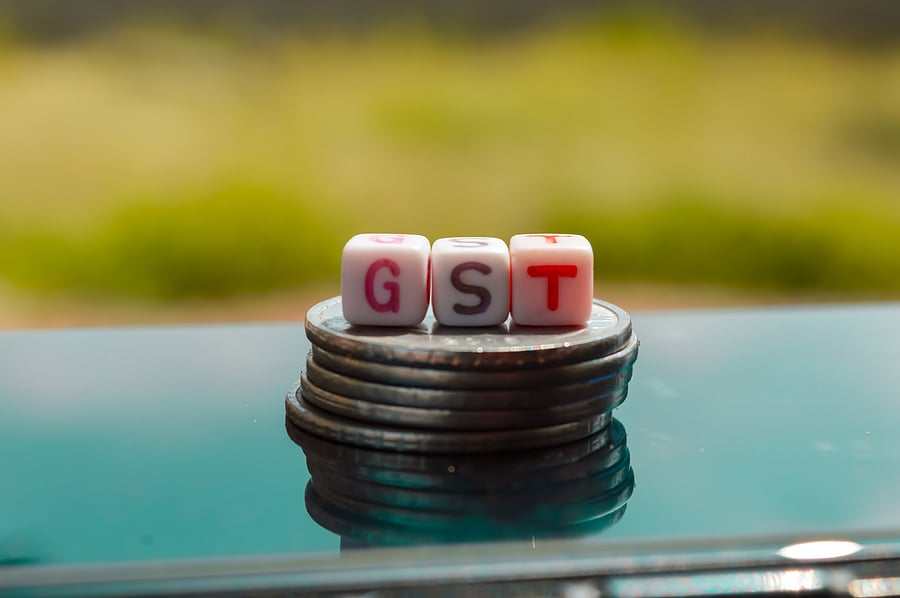Considering the economic environment around which Budget 2020 was presented, it was expected that Finance Minister Nirmala Sitharaman would offer something for everyone. Considering the fact that the Budget speech took a pretty long time to get completed, it appeared that there was something for everyone.
Everyone was expecting announcements to be made regarding GST 2.0- GST in a new avatar- but were left disappointed. Both the Economic Survey as well as the opening part of the Budget speech focused on how GST has benefited the nation and what and all the government has done to proactively troubleshoot issues that cropped up during the implementation.
Considering the fact that the finance minister spoke of a nominal GDP growth of 10%, the increase in GST revenues appears doable. Interestingly, IGST revenues have not been projected since this is subject to apportionment and fund settlement between Centre and states as a result of cross utilisation of credits. This is a sort of an admission that states are not getting their pound of flesh from GST revenues.
CGST Act: 14 amendments have been made in the CGST Act and most of them are administrative in nature. One significant amendment was to Section 132 of the CGST Act.
According to this, the offence of fraudulent availment of input tax credit without an invoice or bill is being made a cognizable and non-bailable offence, and to make any person - who commits or causes the commission, or retains the benefit of transactions arising out of specified offences - liable for punishment. This has obviously been proposed to instill some fear into those who fraudulently avail input tax credit.
One would expect the notification that should come out soon to throw some light on what would be considered fraudulent. Continuing in the same vein, it is proposed that a new sub-section would be introduced in Section 122 of the CGST Act to make the beneficiary of the transactions of passing on or availing fraudulent Input Tax Credit liable for penalty similar to the penalty leviable on the person who commits such specified offences. It is clear that the government is in no mood to let those claiming credit fraudulently to go scot-free.
GST rates: One would have thought that the finance minister would make an announcement that GST rates would be changed only once in a year. This would have given them a few brownie points on improving the Ease of Doing business rankings.
The Budget has made a couple of changes to rates of tax on fishmeal (exempted) and pulley, wheel and other parts (12%). However, the provisions also state that those who have paid taxes on these products will not be permitted to claim a refund - this is yet another subtle hint that GST revenues are a cause for concern.
Similarly, no refund on account of inverted duty structure would be admissible on any tobacco products. These rate changes have forced a question to be asked - can the Union Budget suggest changes to rates without informing the fitment committee of the GST Council? Though the notifications for these rate cuts are yet to come out, the notifications can be expected before the next meeting of the GST Council.
Section 10 of the CGST Act is being amended so as to exclude from the ambit of the Composition Scheme certain categories of taxable persons, engaged in making: (i) supply of services not leviable to tax under the CGST Act, or (ii) inter-state outward supply of services, or (iii) outward supply of services through an eCommerce operator.
Customs laws
With GST revenues oscillating, the government is focusing on customs laws to receive some much-needed revenue. There have been a number of cosmetic rate changes in the customs laws.
What took almost everyone by surprise was the following statement: Section 11(2) of the CGST Act empowers the Central government to prevent injury to the economy of the country by the uncontrolled import or export of gold or silver. This clause is being amended to include “any other goods (in addition to gold and silver)” in its ambit.
One of the major problems that taxpayers faced in the first few months of GST was their inability to file the form to avail transitional credit – GST Tran-1. Prior to the first deadline of December 31, 2017, the now common technical issues cropped up in the portal thereby putting eligible taxpayers in a situation whereby they could not avail credit.
Writ petitions followed and all the high courts instructed the Department to keep open the portal for those who could not file the transition forms. It appears that not all the taxpayers have been able to file their forms since the finance minister has stated that the transition provisions are being amendment with retrospective effect from July 1, 2017. At some point in time, the GST Council should ensure that there is a sunset date for the transition provisions.
The Budget speech consisted of an amalgam of feel-good plans in an eclectic set of areas. The finance minister could have taken this as an opportunity to reveal the overall structure of GST 2.0 that would add to the feel-good factor – rate changes only annually, matching of invoices and throwing out error report for mismatched invoices, mentioning something about GST assessments on which no one has a clue right now etc.
In an effort to please all, she has ended up pleasing only a few.
It would seem that the government is hoping against hope that the new system of invoicing proposed from April 1 would magically cure issues in GST. Considering the fact that the GST portal displayed its erratic moods one day prior to the presentation of the Union Budget, taxpayers would be hoping against hope that the new system of invoicing would magically cure all technology issues in the GST portal. Here’s hoping that both these hopes translate into reality.
(The writer is a Bengaluru-based tax expert)
